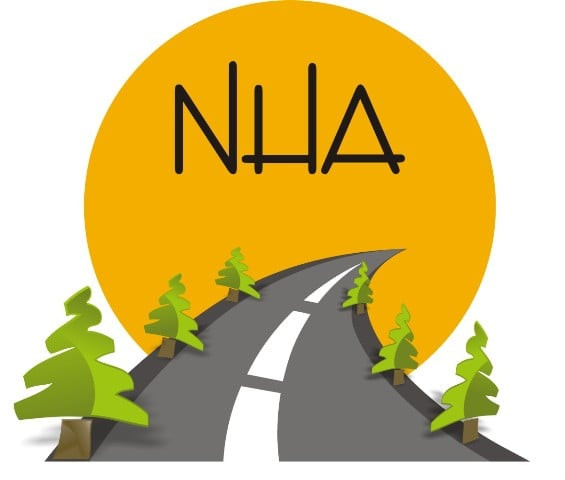No more sajji houses along Super Highway as NHA proceeds with M-9 project
The National Highway Authority wants to widen the highway’s width to 78 feet.

The 136-kilometre road will be steel-fenced on both sides, officials told The Express Tribune. Once the project gets completed, the highway will be renamed M-9. “Work [on the project] will start after July, and all the businesses will have to be moved,” said NHA’s Yousuf Ali.
The NHA has awarded the contract for the M-9 project, on a build-operate-transfer (BOT) basis, to a Malaysian company, Bina Puri, for reportedly Rs24.9 billion. The company has the right to collect toll on the road for 28 years after the project’s completion. The NHA, meanwhile, has been collecting toll from vehicles crossing the Super Highway since 1976.
The four-lane Super Highway will be widened into a six-lane motorway, and will have a width of 76 feet. It will have seven interchanges and will be constructed in 30 months.
As it currently stands, the highway is spotted with dozens of restaurants, petrol pumps, service stations, truck stands, mechanic shops and resting areas.
The area’s businessmen have already won a case against removal of their establishments from the Sindh High Court. They are fighting an appeal filed by the NHA in the Supreme Court.
“We could leave the place, but it will not help the project in any way. The Malaysian company will simply allow other businesses to operate on its own terms,” opined Malik Shabbar, who owns a petrol pump in the area.
Most of these businessmen purchased land for their establishments from local people who had inherited the land from their forefathers.
“The NHA cannot cancel [our] leases because we have nothing to do with the land,” said Shabbar.
Ali reiterated that the NHA held the right to cancel the leases for the land that was being used by business establishments. “People who are criticising the project have illegally encroached upon the land.”
No middle ground
Relocating the restaurants and petrol pumps to another location is out of the question, says Shabbar. “The cost of moving a petrol pump from one place to another will be enormous. The authorities are also expecting us to buy the land again.”
Sajjad Dayo, owner of the Sajjad Restaurant, lamented that the NHA did not even bother telling businessmen in the area about the project. Dayo’s restaurant is spread over 2.5 acres of land, which he bought from a private entity. “One acre of land in the area is selling for Rs15 to Rs20 million. If the government doesn’t compensate me, then how can I purchase another piece of land in the area,” said Dayo.
Financing the project
A consortium of Employees Old Age Benefit Institution (EOBI) and the National Engineering Services Pakistan (Nespak) reportedly submitted a bid of Rs18 billion, much lower than Bina Puri’s bid of Rs24.9 billion, for the M-9 project. It also said that it will take tolls for 22 years.
However, the EOBI-Nespak consortium was disqualified from the bidding process on the pretext that the Malaysian company will bring foreign investment into the dollar-starved country.
“It has now become common knowledge that Bina Puri will have to raise the money from the local banking system,” revealed a person close to the deal.
The provincial government has also voiced concerns about its exclusion from the project. Sindh Finance Minister Murad Ali Shah announced that the provincial government will have 20 percent equity in the project.
Published in The Express Tribune, June 19th, 2012.


















COMMENTS
Comments are moderated and generally will be posted if they are on-topic and not abusive.
For more information, please see our Comments FAQ